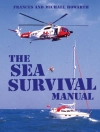Nutritional supplements are ubiquitous. A physician may be asked 10-20 times a day about various supplements. That same physician ends up relying primarily on the internet for information about the supplements. Currently, there is no single, easy-to-use reference for a physician to access to learn about the evidence behind different common supplements. This text fills that gap by allowing physicians to be able to educate themselves and their patients about important supplements in terms of what the data actually says about those supplements, how they work or don’t work on different problems and also how those supplements may interact with a patient’s medications.
The chapters are organized alphabetically by supplement to make it easy for a physician to reference which one they are specifically looking for. There are eight chapters total as well as an introduction and conclusion. Each supplement is broken down into subsections such as what is it and howit works in the body, what is it used for and at what dosage, evidence for or against its different uses, safety concerns, side effects, and precautions and interactions with other medications.
Written by experts in the field,
An Evidence-Based Guide to Supplements appeals to practicing physicians of every specialty that interact with patients. Supplements are asked about in almost every medical office but especially with primary care physicians, neurologists, psychiatrists, pediatricians, geriatric medicine professionals, pain medicine specialists and rheumatologists.
Tabela de Conteúdo
1. Acarbose.- 2. Dandelion.- 3. Hawthorn – Lysine.- 4. Maca – Pyridoxine (Vitamin B6).- 5. Quercetin – Syrian Rue.- 6. Tamarind – Vitex Agnus Castus.- 7. Wallflower – Zinc.
Sobre o autor
Grant Cooper is the Co-Founder and Co-Director of Princeton Spine and Joint Center. Joseph Herrera is Professor and Chair of Rehabilitation and Human Performance Medicine at Mount Sinai. Drs. Cooper and Herrera founded and launched the Springer journal, Current Reviews in Musculoskeletal Medicine, which is still in publication. They have edited numerous successful medical books together under the Springer banner.
Scott Curtis has served as the Director of Sports Medicine for Princeton Spine and Joint Center. since 2017. He has edited several books for Springer including A Case-Based Approach to Shoulder Pain and Essential Sports Medicine Edition 2.Scott Curtis has served as the Director of Sports Medicine for Princeton Spine and Joint Center. since 2017. He has edited several books for Springer including A Case-Based Approach to Shoulder Pain and Essential Sports Medicine Edition 2.












